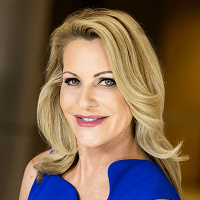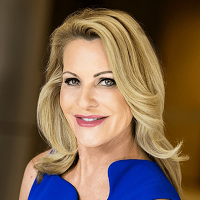Don't Let Your Kids' Bad Financial Habits Drain You Dry
When adult kids make financial mistakes, their parents can suffer. So, step in early to help your kids succeed, instead of letting their regrets become yours.


Profit and prosper with the best of Kiplinger's advice on investing, taxes, retirement, personal finance and much more. Delivered daily. Enter your email in the box and click Sign Me Up.
You are now subscribed
Your newsletter sign-up was successful
Want to add more newsletters?

Delivered daily
Kiplinger Today
Profit and prosper with the best of Kiplinger's advice on investing, taxes, retirement, personal finance and much more delivered daily. Smart money moves start here.

Sent five days a week
Kiplinger A Step Ahead
Get practical help to make better financial decisions in your everyday life, from spending to savings on top deals.

Delivered daily
Kiplinger Closing Bell
Get today's biggest financial and investing headlines delivered to your inbox every day the U.S. stock market is open.

Sent twice a week
Kiplinger Adviser Intel
Financial pros across the country share best practices and fresh tactics to preserve and grow your wealth.

Delivered weekly
Kiplinger Tax Tips
Trim your federal and state tax bills with practical tax-planning and tax-cutting strategies.

Sent twice a week
Kiplinger Retirement Tips
Your twice-a-week guide to planning and enjoying a financially secure and richly rewarding retirement

Sent bimonthly.
Kiplinger Adviser Angle
Insights for advisers, wealth managers and other financial professionals.

Sent twice a week
Kiplinger Investing Weekly
Your twice-a-week roundup of promising stocks, funds, companies and industries you should consider, ones you should avoid, and why.

Sent weekly for six weeks
Kiplinger Invest for Retirement
Your step-by-step six-part series on how to invest for retirement, from devising a successful strategy to exactly which investments to choose.
When was the last time you considered this question: Do your kids know what they’re doing with their money? And I’m not talking about toddlers, younger kids or teenagers. Those kids have an excuse: They’re young — they might have an allowance and be legal dependents. But if you don’t know how your grown kids are doing with their money, their mistakes could affect you and your family’s finances and wealth picture.
Think back to your days as a young adult in your 20s and early 30s — did you understand the importance of things like savings and taxes? Did you even care about something like retirement? Back then, that must have seemed so far in the future!
It’s understandable to see why young people, such as your kids, might not fully prioritize their finances, but it doesn’t mean that money mistakes can’t be potentially devastating. While life happens and it’s OK to mess up and learn from mistakes, hopefully, you didn’t make mistakes that cratered your finances or put the type of financial pressure on your parents or family that affected their financial stability.
From just $107.88 $24.99 for Kiplinger Personal Finance
Become a smarter, better informed investor. Subscribe from just $107.88 $24.99, plus get up to 4 Special Issues

Sign up for Kiplinger’s Free Newsletters
Profit and prosper with the best of expert advice on investing, taxes, retirement, personal finance and more - straight to your e-mail.
Profit and prosper with the best of expert advice - straight to your e-mail.
Even just thinking about this hypothetical situation, you can see how an adult child’s financial mistakes can affect the parents! That’s why one of the best things you can do for your own financial standing is to make sure your kids aren’t making financial mistakes that could turn you into their financial support system. In addition, prepare them with the knowledge of your unique wealth situation so that they have the tools to navigate it without squandering what you leave them.
Consider this: If you need to support your kids substantially toward the end of your working life, that can make saving for your retirement difficult. You might be counting on IRA and 401(k) catch-up contributions, which allow you to contribute additional dollars to those accounts after you turn 50. But if you can’t afford to save more because you’ve gained a dependent, that catch-up contribution and matching percentage doesn’t even apply to you! This is just one example of how having to support your adult kids financially can affect your retirement.
In addition, if your kids struggle with maintaining financial independence or occasionally run into money troubles, what does that say about how they might take care of what you leave them after your passing? Furthermore, if you haven’t taken the necessary steps to make your estate tangible and transferable legally and you haven’t clued your heirs into that process, that’s even more reason for your estate to diminish after you’ve passed it on.
Whether you plan to leave your kid’s generational wealth or simply a cushion for emergencies, your legacy and estate plan could be for naught if they don’t have the tools and knowledge necessary to nurture and maintain a healthy financial situation.
It’s easy to think of your retirement strategies as isolated to your ability to save, invest wisely and budget properly. But the truth is, your finances are a family matter. Full stop. In turn, your family’s financial independence can be the best investment in your own finances and your family’s.
While it’s easy to see that your kids’ financial independence is a major key to your financial life and legacy, figuring out how to ensure that your kids are handling their finances well and that they’re set up to take care of what you leave them is more difficult.
So, what can you do to help your kids out? What red flags should you keep an eye out for?
Understanding debt
Most people in their early- or mid-career don’t fully understand debt. I’ve seen it in my clients’ children repeatedly since I started in this profession, and it’s only getting worse. Here’s why: college. When you go to college, it’s expensive (obviously). But if you are taking out a loan to afford college at 18 years old, you probably don’t know what $50,000 really means. It’s pretty unlikely that college kids in their late teens and early 20s could make $50,000 a year while also going to school, so the number feels fake to them. It’s something they’ll deal with when they “grow up.” Since debt can compound over time, I don’t have to tell you that this can be a recipe for disaster.
This is where you can step in and do some good. Look up some of the careers they’re thinking about and see how much in salary they pay on average. Ask your kids where they want to live and get an estimate of how much it would cost to live there. Run the numbers with them and talk about what it will look like to pay their loans when they’re out of college. You don’t have to force them into one career or another, but you can help them set realistic expectations about the lifestyle they can afford.
Imparting the importance of retirement saving
When you’re young, retirement may be the last thing on your mind, but it shouldn’t be. It's important to encourage your adult children to save for retirement early on. By emphasizing the potential for compounding returns and the value of consistent saving, you can help instill a positive mindset about financial planning and responsible money management in your children, setting them up for long-term stability.
Insurance can make a difference
To a healthy young person, insurance seems like a waste of money. But all it takes is one seemingly small accident or emergency without insurance to obliterate your savings. Not everyone needs insurance for everything of course, but thinking you are invincible and won’t ever need insurance could be the difference between your kid (and ultimately you) achieving financial security or struggling to maintain it.
The housing and rent question
Young people are constantly told that owning a home is out of their reach entirely. The buzz these days is that home prices are at all-time highs, pricing out the Millennial generation from purchasing homes of their own. And with interest rates where they are, it’s not easy to cover interest payments either.
For many, it’s a reality that they will never be homeowners the way their parents were. That’s sad, but it shouldn’t be an excuse to overspend on rent or to forgo saving at all.
You probably have great knowledge of how your financial situation lies and should be maintained, plus the decades of experience you have maintaining your own finances. But there also might be intricate financial rules and strategies that a financial professional has access to that can improve your situation and breadth of financial opportunities, not just for you but for your heirs and family.
Your retirement and family financial situation can be thought of as a team sport. It requires that everyone act within an expert-informed game plan. So, the best thing you can do to protect your and your family’s finances is to sit down together with your family and a financial professional to get the ball rolling about how to achieve financial stability and independence for your family and for you.
Related Content
- The Real Cost of Funding Adult Children: Postponing Retirement
- 60% of Parents Pay Bills For Adult Children. Do You?
- Parents: Just Say No to Raising a Failed Adult
- How to Get Your Kids to Step Off the Gravy Train
- Four Ways to Teach Young Adults How to Manage Great Wealth
Profit and prosper with the best of Kiplinger's advice on investing, taxes, retirement, personal finance and much more. Delivered daily. Enter your email in the box and click Sign Me Up.

Debbie Placet, CFP®, is the Managing Partner of RJP Estate Planning. Her experience in estate planning spans over a decade, and she continues to bring her expertise to clients in the Arizona area. After graduating from Ohio Wesleyan University with a degree in economics, Debbie took her education in financial services to the next level by acquiring a Certified Financial Planner designation through George Washington University.
-
 Ask the Tax Editor: Federal Income Tax Deductions
Ask the Tax Editor: Federal Income Tax DeductionsAsk the Editor In this week's Ask the Editor Q&A, Joy Taylor answers questions on federal income tax deductions
-
 States With No-Fault Car Insurance Laws (and How No-Fault Car Insurance Works)
States With No-Fault Car Insurance Laws (and How No-Fault Car Insurance Works)A breakdown of the confusing rules around no-fault car insurance in every state where it exists.
-
 7 Frugal Habits to Keep Even When You're Rich
7 Frugal Habits to Keep Even When You're RichSome frugal habits are worth it, no matter what tax bracket you're in.
-
 No-Fault Car Insurance States and What Drivers Need to Know
No-Fault Car Insurance States and What Drivers Need to KnowA breakdown of the confusing rules around no-fault car insurance in every state where it exists.
-
 7 Frugal Habits to Keep Even When You're Rich
7 Frugal Habits to Keep Even When You're RichSome frugal habits are worth it, no matter what tax bracket you're in.
-
 Why Picking a Retirement Age Feels Impossible (and How to Finally Decide)
Why Picking a Retirement Age Feels Impossible (and How to Finally Decide)Struggling with picking a date? Experts explain how to get out of your head and retire on your own terms.
-
 The Best Precious Metals ETFs to Buy in 2026
The Best Precious Metals ETFs to Buy in 2026Precious metals ETFs provide a hedge against monetary debasement and exposure to industrial-related tailwinds from emerging markets.
-
 For the 2% Club, the Guardrails Approach and the 4% Rule Do Not Work: Here's What Works Instead
For the 2% Club, the Guardrails Approach and the 4% Rule Do Not Work: Here's What Works InsteadFor retirees with a pension, traditional withdrawal rules could be too restrictive. You need a tailored income plan that is much more flexible and realistic.
-
 Retiring Next Year? Now Is the Time to Start Designing What Your Retirement Will Look Like
Retiring Next Year? Now Is the Time to Start Designing What Your Retirement Will Look LikeThis is when you should be shifting your focus from growing your portfolio to designing an income and tax strategy that aligns your resources with your purpose.
-
 I'm a Financial Planner: This Layered Approach for Your Retirement Money Can Help Lower Your Stress
I'm a Financial Planner: This Layered Approach for Your Retirement Money Can Help Lower Your StressTo be confident about retirement, consider building a safety net by dividing assets into distinct layers and establishing a regular review process. Here's how.
-
 Stocks Sink With Alphabet, Bitcoin: Stock Market Today
Stocks Sink With Alphabet, Bitcoin: Stock Market TodayA dismal round of jobs data did little to lift sentiment on Thursday.